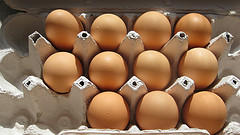How Much Oil Should You Consume?
Oil has a reputation for being bad for the waistline, but select oils are very beneficial when consumed in moderation. This helpful guide from the USDA provides simple, accessible descriptions of the main types of oils, then helps you to make informed decisions about which to use. Here are the highlights:
What are oils?
Oils are fats that become liquid at room temperature. Things like canola oil, corn oil, sunflower oil, and olive oil are common, as well as the oils found in foods like nuts, olives, avocados, and some fish.
How are oils different from solid fats?
Solid fats contain more saturated fats and/or trans fats, while oils contain more monounsaturated and polyunsaturated fats. Saturated fats and trans fats raise the “bad” cholesterol in your body, which increases the risk of heart disease.
Why are oils important?
It is important to consume oils because they provide essential nutrients. Oils are the major source of essential fatty acids, which are necessary for your health, and they are also provide the majority of your body’s Vitamin E.
How much oil should I consume?
The average American adult needs anywhere from five to seven teaspoons of oil per day, depending on factors like your gender, age, and level of physical activity.
What Are “Oils”? [USDA]

Category: Miscellaneous Tags: Food, Health, Oil, Wellness




 Equal Housing Opportunity
Equal Housing Opportunity